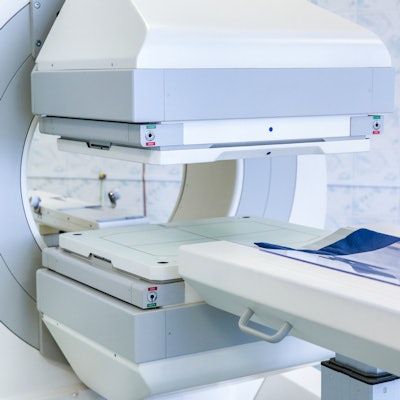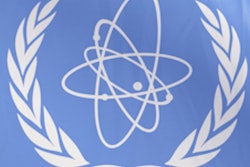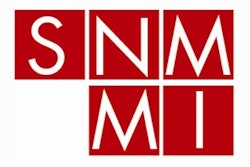
How can nuclear medicine departments keep patients and staff safe during the COVID-19 pandemic? A new set of guidelines from the International Atomic Energy Agency (IAEA) provides some guidance.
The IAEA document, published April 15 in the European Journal of Nuclear Medicine and Molecular Imaging, also warns practitioners of the potential for shortfalls in the supply of radioisotopes, such as molybdenum-99 (Mo-99), given current restrictions on global airline traffic due to the novel coronavirus outbreak.
Nuclear medicine departments around the world perform more than 30 million imaging studies each year on patients with cancer, cardiovascular disease, dementia, and other adverse health conditions. Given those essential responsibilities, the IAEA recommends that all nuclear medicine staff receive specific training in identifying COVID-19 symptoms and how to best handle infected patients. One way to avoid the situation in the first place is to contact patients the day before their appointment to see if they have COVID-19 symptoms.
If an imaging scan cannot be postponed, patients with COVID-19 "should be placed in a separate waiting area, and if available, appropriate consultation with the infectious diseases team should be sought," the authors advised. Waiting areas also must be configured so patients can sit a safe distance from each other to avoid transmission of COVID-19.
Technologists and other personnel should always wear personal protective equipment, such as masks and gloves, before, during, and after the scan, and especially when in direct patient contact for radioisotope injection. Staff should pay special attention when removing and disposing of gloves and other protective accoutrements, the authors added, and disinfect devices and equipment used for patient preparation and injection.
Of course, after scanning a patient with COVID-19, all equipment and room surfaces should be disinfected to prevent possible spread of infection.
"Before the patient is released, if the hybrid study involves a CT of the chest, it is imperative to look for incidental COVID-19 findings that might suggest COVID-19 infection," the authors wrote. "If incidental COVID-19 findings are detected in the lungs, it must be reported immediately to the referring clinician, and the patient triaged for the appropriate care pathway."
The IAEA recommends that essential strategies for nuclear medicine departments during the COVID-19 pandemic should include the following:
- A robust screening process for patients and staff to ensure and confirm their health
- Identification and handling of patients with COVID-19 promptly
- Social distancing for staff, patients, and essential visitors
- Training staff members on the proper use of personal protective equipment
- Posters to promote handwashing and proper respiratory hygiene
- Cleaning and disinfecting equipment and accessories after imaging scans
- Readily accessible hand sanitizing dispensers for staff, patients, and the public in multiple locations
- Develop stay-at-home or working-from-home guidelines and schedules for staff
- Create a contingency plan for all supplies, including radiopharmaceuticals
The IAEA also is encouraging cyclotron operators to continue as much production as possible to avoid shortfalls in much-needed isotopes, the bulk of which are manufactured in distant locations around the world. The COVID-19 pandemic has greatly curtailed international flights that transport the radioisotopes, prompting concerns of potential shortages.
"In the likely scenario where there is a shortage of supplies for SPECT studies, it might be useful to explore additional clinical applications of PET, including cardiac, neurological, and infection/inflammation studies," the authors added.




















